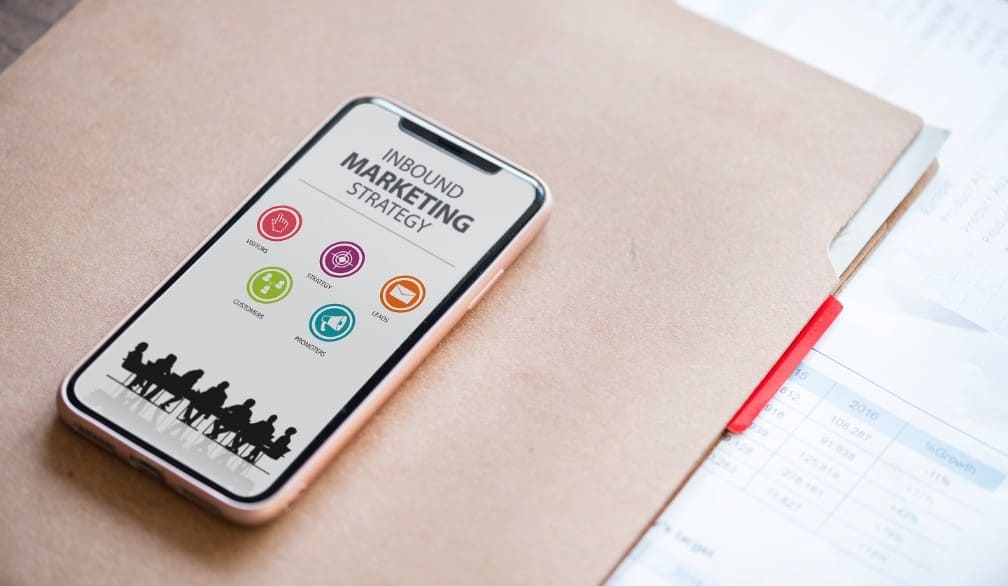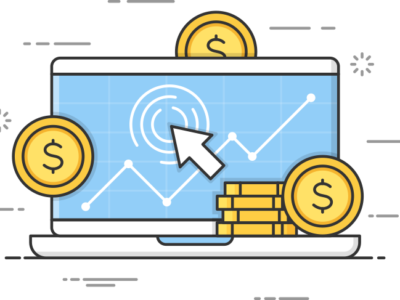Inbound marketing is widely considered as one of the most powerful methods in utilizing digital channels when growing your business, and for a number of good reasons too. There are proven strategies in place, reinforced by an established formula that turns strangers into customers and effective promoters.
There are four phases of the inbound marketing methodology: attract, convert, close, and delight. With the right sales and customer success strategies applied, strangers can convert into visitors, who can then convert into leads, and ultimately, customers and promoters.
With the many effective strategies involved in inbound marketing, there is one that finds itself in the throes of ambiguity: paid search. SEM through pay-per-click (PPC) was initially known as part of an outbound marketing strategy, but changes in strategic processes have had many modern marketers consider it as inbound when used to augment inbound marketing techniques.
To settle the debate, we must first go through the ways why paid search isn’t considered inbound.
Paid Search as an Outbound Strategy
Many marketing experts think paid search falls into a more subtle interruption marketing strategy in a sense that listings appear first on the results page through targeted keywords after performing a Google search.
It’s a form of marketing that’s highly considered as outbound due to the way it’s done: a sort of paid in-your-face marketing strategy where companies initiate the conversation by reaching out and sending a message.
It’s like paying to skip the line of the SEO process so your brand’s message gets positioned front-and-center. Users are interrupted during the search process in order for your message to be shown (i.e. ads are shown before algorithm-based SEO results which are arguably more relevant).
The same goes with banner and video ads. They both work on the same principle, where the good folks of the internet are served with these ads even in the middle of watching a clip where you don’t even have the option to skip them to continue watching your video. If that isn’t outbound, I don’t know what is.
It’s pretty straightforward how paid search works as an outbound marketing strategy. It can be an effective part of your arsenal if used correctly. However, times have changed and so do the ways we handle digital marketing. Our strategies have evolved, and have turned paid search into a key tool that complements inbound marketing.
Paid Search as an Inbound Strategy
Back in 2010, the inbound experts at HubSpot considered PPC campaigns an entirely outbound tactic and I believe the word they used to describe it was ‘wasteful.’ They deemed advertising methods like PPC and banner ads outdated, which result in over-saturation of the web.
But in 2015, HubSpot gurus took back what they said and started recommending PPC as part of other marketing strategies for a more cost-effective lead generation tactic. They now believe that it could be an inbound strategy, as it presents an effective marketing channel when used in conjunction with other measures. Furthermore, they insist that AdWords be used as an important tactic to boost content.
But how can paid search have an inbound effect? Let us count the ways:
-
Answering queries
When internet users launch a search on the web, they expect answers. When executed well, ads can help users find what they’re looking for. As long as your ads are not overly complicated and stuffed with information that don’t address what your consumers are asking, there is a higher chance that you can turn them into leads.
-
Testing landing pages, keywords and their variations
New landing pages or new keywords you would want to rank organically are perfect for a paid search campaign. You can target keywords you would like to rank via SEO and direct them to landing pages and offers you’re trying to test.
In about a few weeks, the results will give you loads of data on how popular your keywords are through impressions, how relevant your service is to those keywords through your click-through rate, and how useful they are to people who have searched through your keywords through the conversion rate.
-
Directing customers down the sales funnel
Each customer goes on a journey through the sales funnel, and your inbound efforts should help direct them from the top down to the middle until they convert. Your paid search ad can encourage users to access your inbound efforts either through a blog, ebook, or infographic and take the first step of the journey.
-
Targeting customers
All the information you have collected about leads can be used to target them using PPC on a variety of platforms. The information you’ve collected over time shows people who have already expressed interest in your business. You can use this information to personalize their experience by adding value to the content they see online.
Think of it as a way of fine-tuning your aim to hit the right targets and draw them in for conversions and eventually, promotion of your business. An excellent example of this in action would definitely be retargeting.
-
Improving visibility
Paid search can improve your business’ visibility in certain areas and in keywords where you haven’t found much success. You can get in the game quickly through a well-placed search ad that helps people notice you. This boosts your efforts in being ranked higher in organic search results for this secondary set of keywords.
And if the competition is not using these keywords in running their search ads, yours will appear on the top of the list.
So, Is Paid Search Inbound?
Now that we have delved into the details, it is now clear that paid search can be both an outbound and an inbound strategy depending on the way it is utilized.
If your goal is to put your business out there and intend to generate leads quick and in the short term while ignoring the importance of inbound marketing, it could be defined as outbound. But if you are in it for the long haul, paid search is a useful strategy that can help augment your other marketing tactics in attracting, converting, closing, and finally, delighting customers the inbound way.
If you’ve got any thoughts on the matter of PPC services as an inbound/outbound strategy be sure to let us know about them in the comments!







